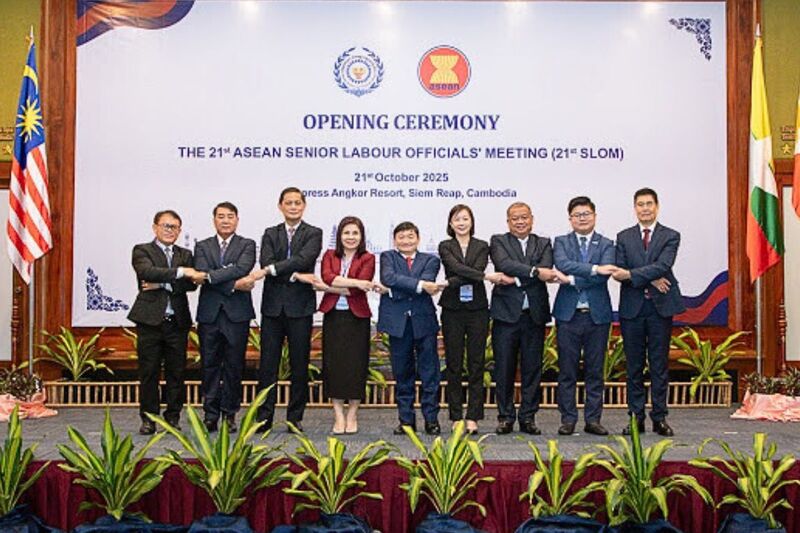National Wages Council Guidelines for 2024/2025: Ensuring Fair, Sustainable Wage Growth for All Workers
The Singapore government has accepted the National Wages Council (NWC) Guidelines for 2024/2025, reaffirming its commitment to fair and sustainable wage growth while balancing the cost pressures faced by businesses. The new guidelines emphasise the importance of aligning wage increases with productivity growth and economic conditions, with a particular focus on uplifting lower-wage workers.
In this article, we will explore the key recommendations of the NWC and what they mean for employers, employees, and the broader Singaporean economy.
Overview of the 2024/2025 Guidelines
The NWC guidelines, effective from December 1, 2024, to November 30, 2025, apply to all employees in both unionised and non-unionised firms in the public and private sectors. They are not mandatory but serve as a strong reference point for employers when determining wage adjustments.
Key Recommendations:
1. Fair and Sustainable Wage Increases
- Employers are encouraged to reward employees with wage increases and variable payments that reflect company performance and productivity growth. Those who have performed well are advised to implement wage increases of 5.5% to 7.5% for lower-wage workers earning up to $2,500 in gross monthly wages. Alternatively, these employees should receive a raise of at least $100 to $120, whichever is higher.
2. Focus on Uplifting Lower-Wage Workers
- The guidelines continue to focus on uplifting lower-wage workers, urging employers to provide meaningful wage increments for this group. As of 2024, nearly 90% of full-time lower-wage workers benefit from schemes such as the Progressive Wage Model (PWM), Local Qualifying Salary (LQS), and/or the Progressive Wage Mark accreditation scheme. The NWC's recommendations are designed to ensure sustained wage growth and narrow the income gap in a sustainable manner.
3. Adoption of the Flexible Wage System (FWS)
- To provide flexibility during uncertain economic conditions, the NWC strongly recommends that companies adopt the Flexible Wage System (FWS). This system enables employers to adjust wages quickly during downturns, thereby maintaining jobs and business sustainability, while providing flexibility to restore wages as business conditions improve.
4. Investing in Workforce Upskilling and Business Transformation
- To sustain wage growth, the NWC calls on employers to transform their business models and upskill their workforce. Companies can tap into various government grants and programmes such as the SkillsFuture initiative, the Jobs Growth Incentive, and the Productivity Solutions Grant to support these efforts. Upskilling will enable employees to take on higher-value roles and contribute more effectively to business outcomes.
5. Support for Lower-Wage Workers through the Progressive Wage Credit Scheme (PWCS)
- Introduced in 2022, the PWCS helps co-fund wage increases for eligible lower-wage workers until 2026, providing transitional support for businesses as they adjust to higher wage requirements. This scheme is aimed at encouraging employers to invest in the skills and productivity of lower-wage workers, making wage increments sustainable in the long run.
Economic Context and Labour Market Insights
The 2024/2025 guidelines come at a time of continued economic expansion and moderating inflation. The Ministry of Trade and Industry projects that the Singapore economy will grow by 2.0% to 3.0% in 2024, with the outlook for 2025 remaining similarly positive. While core inflation has eased to 3.1% year-on-year in the first half of 2024 (down from 4.2% in 2023), rising unit labour costs have created near-term cost pressures on businesses.
Labour productivity, measured by real value-added per actual hour worked, rose by 3.0% year-on-year in the first half of 2024, while nominal wage growth continued to be strong. Over the longer period from 2016 to 2023, overall labour productivity grew by 2.1% per annum, sustaining real income growth (mean) of 0.9% per annum over the same period.
Impact of the Guidelines on Lower-Wage Workers
Lower-wage workers, defined as those earning up to $2,500 in gross monthly wages, are the primary beneficiaries of these guidelines. The NWC’s recommendation of a 5.5% to 7.5% wage increase or at least $100 to $120, whichever is higher, ensures that this group continues to see meaningful pay increments that reflect their contributions and rising living costs.
Additionally, the Progressive Wage Model (PWM) and related initiatives continue to provide a structured approach to wage increases in tandem with skills and productivity improvements. The government’s support through the PWCS helps businesses implement these wage adjustments sustainably.
Emphasis on the Flexible Wage System (FWS)
The FWS is a key focus of the 2024/2025 guidelines, allowing businesses to manage wage costs flexibly during economic fluctuations. The system includes both the Annual Variable Component (AVC) and Monthly Variable Component (MVC), which enable businesses to adjust wages based on company performance and economic conditions. According to the Ministry of Manpower (MOM), 80.4% of companies have implemented either the AVC or MVC, and 10.3% have implemented both.
Looking Ahead: Sustaining Wage Growth and Business Competitiveness
The NWC’s guidelines align with Singapore’s long-term economic strategy to foster sustainable wage growth supported by productivity improvements. As businesses continue to navigate the challenges posed by global economic uncertainties and technological disruptions, the focus on upskilling and transformation will be critical to sustaining competitiveness and ensuring fair wage growth for all workers.
Seeking Your Next Career Opportunity?
Submit your CV — Our trusted Career Consultants will review your resume and contact you if we find a position that matches your profile!
OR
Looking to Hire?
Please fill in this Inquiry Form — our Recruitment Consultants will be in touch with you soon!
Disclaimer:
The information provided in our blog articles is intended for general informational purposes only. It is not a substitute for professional advice and should not be relied upon as such.
While we strive to provide accurate and up-to-date information, the ever-evolving nature of certain topics may result in content becoming outdated or inaccurate over time. Therefore, we recommend consulting with qualified professionals or experts in the respective fields for specific advice or guidance. Any actions taken based on the information contained in our blog articles are solely at the reader's discretion and risk. We do not assume any responsibility or liability for any loss, damage, or adverse consequences incurred as a result of such actions.
We may occasionally provide links to external websites or resources for further information or reference. These links are provided for convenience and do not imply endorsement or responsibility for the content or accuracy of these external sources. Our blog articles may also include personal opinions, views, or interpretations of the authors, which do not necessarily reflect the views of our organisation as a whole. We encourage readers to verify the accuracy and relevance of information presented in our blog articles and to seek professional advice when needed. Your use of this website and its content constitutes acceptance of this disclaimer.
References:
Ministry of Manpower – National Wages Council Guidelines 2024/2025
Ministry of Trade and Industry – Economic Outlook 2024
Progressive Wage Credit Scheme Overview
National Wages Council Annual Report 2024/2025






